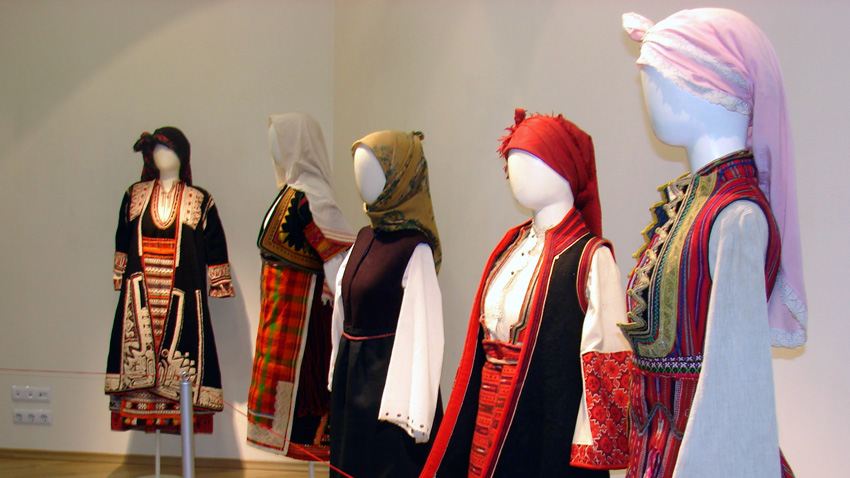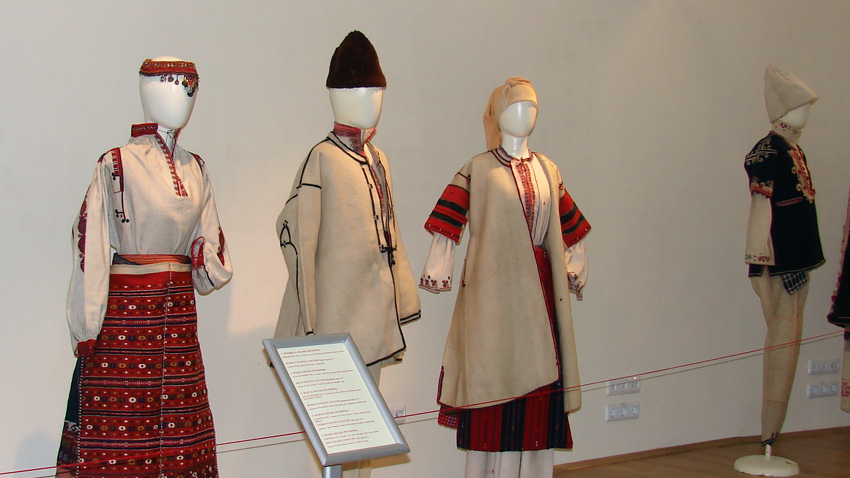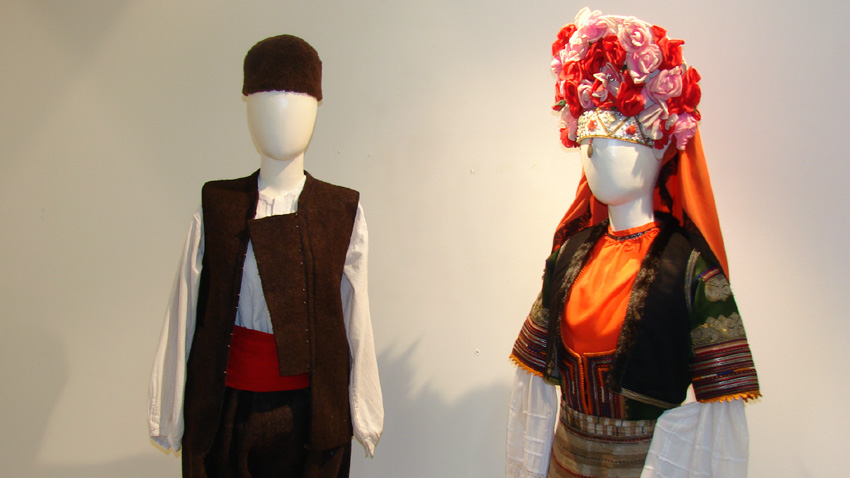Richly decorated men's and women's wedding attire in combination with jewellery, ornate belt buckles, aprons and belts are on display at the “Traditional national costumes” exhibition in Bourgas on the Black Sea, evoking a huge amount of interest.
The authentic exhibits coming from different parts of Bulgaria were donated by the Bulgarian Academy of Sciences' Institute for Ethnology and Folklore Studies with Ethnographic Museum. A pageant of traditional costumes to the sound of folk music was organized at the opening of the exhibition.

Here is more about the event from Anelia Kazakova from Bourgas municipality:
“The Marine Casino cultural centre devoted six weeks to the beauty of traditional Bulgarian clothes. The exhibition showcases the beauty and diversity of traditional garments that go back centuries. For example, the traditional costumes on show here are 150 years old. There are men's and women's items of clothing from different folklore regions - from the Shoppe region, from Dobroudja, Pirin, Thrace, the Rhodopes, the region of Moesia. I would like to make mention of a wedding dress from the region of Kyustendil, a costume from the National Revival period from Zheravna, traditional women's clothing from the Bulgarian community in Bessarabia.”

Anelia Kazakova adds that the idea is to bring people in touch with history and tradition and pass them on to the coming generations.
Visitors marvel at the array of accessories - bodices, belts, belt buckles, bracelets, stockings, slippers, leather shoes and boots from Burdarski Geran village near Byala Slatina, but also pattens for city dwellers and the calfskin tsurvouli (traditional village shoes without soles, laced up to the knee) that are more than 150 years old. One of the costumes from Sofia goes with a pinafore plus gloves.

Traditional clothing has a deep meaning, indicating the social standing as well as the age of the woman. Older women would dress in darker clothes - black or maroon for example, while head scarves had to be plain, in just one colour. Young girls, on the other hand wore an array of colours as well as embroidery. According to tradition, while they were sewing and embroidering their clothes, women would invariably leave some element unfinished in their shirt, apron or skirt. It was believed that this warded off evil.
English version: Milena Daynova
A young Bulgarian artist decided to leave this world in the middle of the past century in order to preserve his incorruptibility, even though he was defeated by the system on a purely physical level. Currently, in the gallery of the..
Musical, culinary, folklore events… the event program in Bulgaria is saturated, so much so that experts are already talking about how the alarmingly growing number of new festivals should be limited. "A clear strategy is needed: which existing..
Bulgarian society knows very little about the Bulgarian emigrants to Argentina. The curious story of the path of our compatriots to the South American country and the threads by which they are connected to their ethnic roots thousands..

+359 2 9336 661
